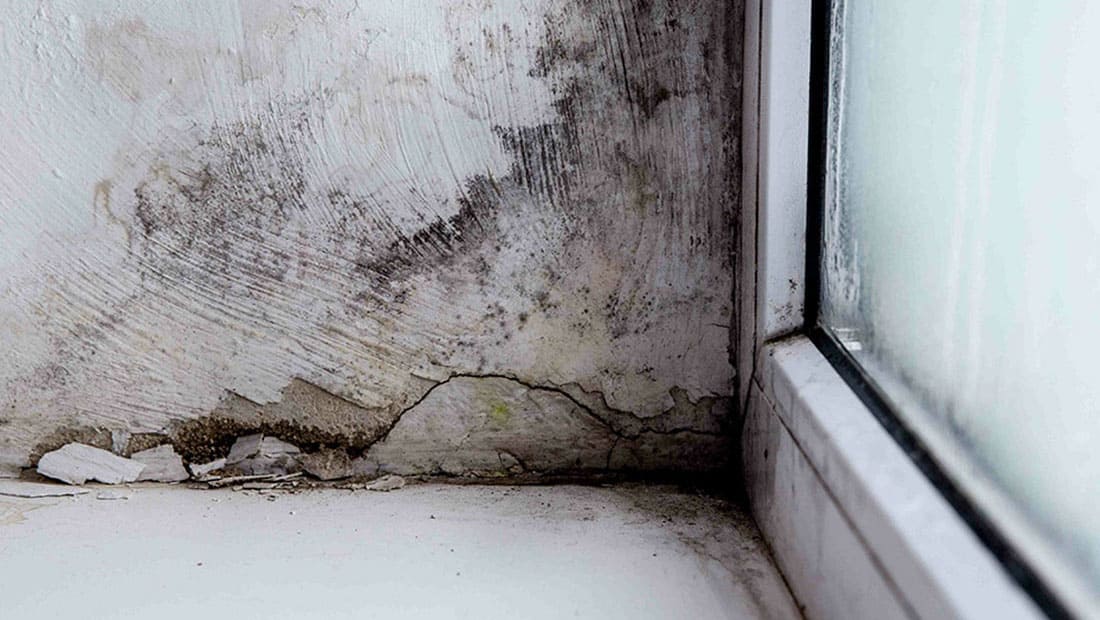Mould in council housing London is a growing issue for tenants. It’s not just an eyesore—it can harm your health and make living conditions unbearable. If you’re a tenant in a London council house, you deserve a safe, healthy home. This article explains the problem of mould-related disrepair, your rights, how to claim compensation, and how National Claims can help. Let’s break it down simply.
What Is Mould-Related Disrepair?
Mould grows in damp, poorly ventilated spaces. In council houses in London, it often appears due to leaks, broken heating, or bad insulation. Black spots on walls, a musty smell, or peeling paint are common signs. Mould isn’t just a cosmetic issue—it can cause serious health problems like asthma, allergies, or respiratory infections, especially for children and the elderly.
The law says landlords, including councils, must keep your home in good repair. If your London council housing has mould and the council hasn’t fixed it, that’s disrepair. You have the right to take action.
Why Is Mould a Big Problem in London Council Housing?
London’s climate is damp, and many council houses in London are old with poor maintenance. Overcrowding and lack of ventilation make things worse. For example, a 2022 report by the UK government highlighted that 3.6% of social housing in England had serious damp and mould issues (source: gov.uk, English Housing Survey 2022). In London, the numbers are even higher due to the city’s housing density.
Moreover, councils often face budget cuts, leading to delays in repairs. Tenants report waiting months—or even years—for fixes. A 2023 BBC News article revealed that some London councils had thousands of unresolved disrepair cases, leaving families in unhealthy homes (source: BBC News, 2023).
Health Risks of Living with Mould
Mould isn’t just unpleasant—it’s dangerous. Here’s how it can affect you:
- Respiratory Issues: Mould spores can trigger asthma or bronchitis.
- Allergies: Itchy eyes, sneezing, and skin rashes are common.
- Mental Health: Living in a mouldy home can cause stress, anxiety, or depression.
Children, the elderly, and people with existing health conditions are most at risk. The NHS warns that prolonged exposure to mould can worsen health problems (source: nhs.uk, Mould and Damp Health Risks).
Your Rights as a Tenant in Council Housing London
As a tenant in a London council house, you’re protected by law. The Landlord and Tenant Act 1985 says councils must keep your home in good repair, including fixing issues like damp and mould. Additionally, the Housing Act 2004 classifies mould as a “Category 1 hazard” if it risks your health.
If your council fails to act, you can:
- Report the issue in writing and keep records.
- Give the council a reasonable time to fix it (usually 21 days).
- If nothing happens, you can make a claim for disrepair.
How to Take Action Against Mould in London Council Housing
First, report the mould to your council. Use email or a formal letter, and take photos of the problem. If the council doesn’t respond, you can escalate the issue. Here’s how:
- Contact Environmental Health: Your local council has an Environmental Health team that can inspect your home.
- Make a Formal Complaint: Follow your council’s complaints process.
- File a Claim: If the council still doesn’t act, you can take legal action for disrepair.
This is where National Claims can help. National Claims will put you in touch with experienced solicitors who will help you with your claim. They’ll guide you through the process, ensuring you get the compensation you deserve.
How Much Compensation Can You Claim?
Compensation for mould-related disrepair in council housing London depends on several factors:
- Severity of the Mould: More severe cases that impact your health lead to higher payouts.
- Length of Time: If you’ve lived with mould for years, you may get more.
- Health Impact: If you’ve developed health issues, you can claim for medical costs and suffering.
- Damage to Belongings: Mould-damaged furniture or clothes can be included in your claim.
On average, compensation for mould disrepair ranges from £1,000 to £10,000. For example, if you’ve had severe health issues and the council ignored your complaints for over a year, you might claim on the higher end. However, each case is different, so it’s best to speak with a solicitor. National Claims can connect you with experts to assess your case.
Why Choose National Claims?
Dealing with a council can be stressful, especially if you’re already living in poor conditions. National Claims makes the process easier. They’ll match you with experienced solicitors who specialise in housing disrepair. These professionals know how to handle London council housing cases and will fight for your rights. Plus, many solicitors work on a no-win, no-fee basis, so there’s no financial risk for you.
Steps to Prevent Mould in Council Houses in London
While the council is responsible for fixing structural issues, you can take steps to reduce mould:
- Ventilate Your Home: Open windows daily to let fresh air in.
- Use a Dehumidifier: This helps reduce moisture in the air.
- Wipe Down Surfaces: Clean condensation off windows and walls.
- Avoid Drying Clothes Indoors: If you must, use a well-ventilated room.
However, if the mould is due to structural problems like leaks, it’s the council’s job to fix it—not yours.
Frequently Asked Questions About Mould in London Council Housing
Q1. What should I do if my London council house has mould?
Report it to your council in writing. Take photos and keep records. If they don’t fix it, contact National Claims for help.
Q2. Can I claim compensation for mould in council housing London?
Yes, if the council fails to fix the mould and it affects your health or damages your belongings, you can claim.
Q3. How long does a disrepair claim take?
It varies. Simple cases may take a few months, while complex ones can take over a year.
Q4. Will I have to pay legal fees?
Many solicitors work on a no-win, no-fee basis, so you won’t pay unless you win. National Claims can confirm this for you.
Q5. Can I be evicted for making a claim?
No, it’s illegal for a council to evict you for reporting disrepair or making a claim.
Conclusion: Take Control of Your Living Conditions
Mould in council houses in London is a serious issue, but you don’t have to live with it. You have the right to a safe, healthy home, and the law is on your side. If your London council housing is affected by mould, act now—report the problem, and if the council doesn’t help, consider a claim.
National Claims is here to support you. They’ll connect you with experienced solicitors who will help you with your claim, ensuring you get the compensation you deserve. Don’t let mould ruin your health or home—take action today.
Contact National Claims today, and we will put you in touch with an expert solicitor who can guide you through the claims process.📞 Call us now free 0800 029 3849 or 📩 Submit an online enquiry to speak to our team. Your safety and well-being matter, and we’re here to help.

We’re proud of our excellent customer reviews
We thrive on delivering exceptional service and ensuring our clients’ satisfaction. Don’t just take our word for it. Check out some of our independent reviews to see what our clients have to say.
Excellent

This firm is excellent, they sorted out my car pay out and injury claim very fast, they always communicate with you all the time.

My accident case was dealt with confidence and with great result of the outcome, especially James kept me informed all the time.

I was very impressed at the way my inquiry was treated. I was listened to attentively and everything I needed to know was explained to me.






